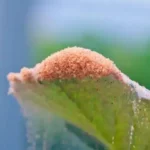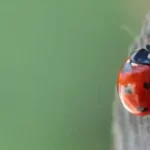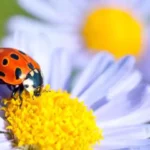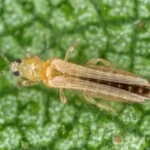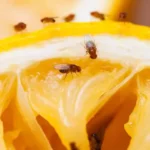If you’ve noticed your garden is under siege by grasshoppers, you’re probably seeking practical solutions to protect your plants and wondering, does Neem oil kill grasshoppers? Watching these pests devour your hard work can be disheartening. Understanding your frustration, we’re here to explore a natural remedy that might be the answer to your problem.
Neem oil is a natural insecticide that disrupts grasshoppers’ life cycles. It also acts as an antifeedant and deterrent, making it a safe and effective solution for protecting your garden. Neem oil can be effective against grasshoppers, but its effectiveness may vary depending on their concentration and life cycle stage.
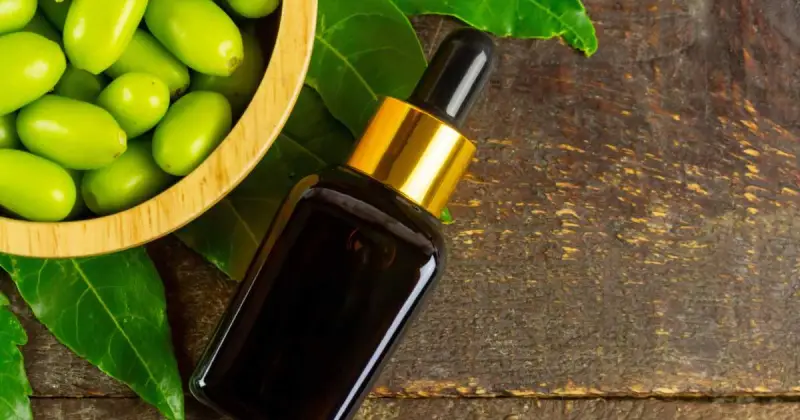
Read on to discover how Neem oil can be your ally in the battle against grasshoppers. You’ll learn its mechanisms as an antifeedant that deters these pests from eating your plants and its safety for beneficial predators for natural pest control.
We’ll also cover its repellent qualities against grasshopper eggs and nymphs. This information will equip you with the knowledge to use Neem oil effectively in your garden, offering your plants the protection they need.
Humble Highlights
- Discover how Neem oil can help protect your garden from grasshoppers by understanding how this unique oil affects these hungry critters so you can reclaim your green space AND help reduce the risk of disease these insects can spread.
- Discover these 3 common strategies that help amplify Neem oil’s efficacy against grasshoppers so you can prevent further damage and help keep your garden safe and protected from these bugs.
- Save time by uncovering alternative and environmentally responsible strategies for combatting grasshoppers you can use in conjunction with Neem oil so you can promote a more diverse and resilient ecosystem – right in your backyard!
Neem Oil: An Effective Grasshopper Killer
Neem oil effectively interrupts the life cycle of grasshoppers, serving as a powerful natural insecticide. It is highly effective in managing these pests. Spraying plants with neem oil creates a barrier that repels grasshoppers. Furthermore, it acts as an antifeedant, making the foliage less appealing to these insects, discouraging them from eating the plants.
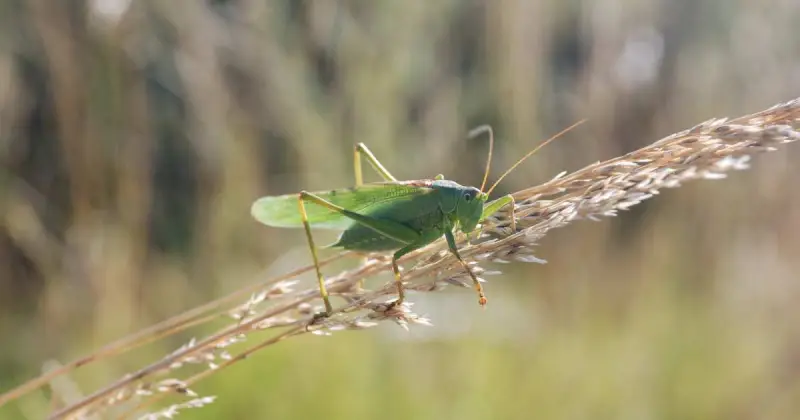
Neem oil disrupts the growth and development of insects, including grasshoppers, and can also repel them. To use It against grasshoppers, mix the oil with water according to the manufacturer’s instructions and spray it directly onto the grasshoppers and the plants they feed on. 1
Remember, Neem oil works best when applied to young grasshoppers or nymphs, as it can interfere with their growth and development.
An advantage of Neem oil is its safety for beneficial predators of grasshoppers, ensuring that while it addresses unwanted insects, it doesn’t affect helpful species.
Consistent application of Neem oil is essential for optimal control of grasshopper populations. Regular treatment interrupts the pests’ lifecycle, protecting plants from future damage. Employing the soil with additional methods can improve its efficacy, offering a comprehensive strategy for handling grasshopper outbreaks.
Understanding Neem Oils Impact On Grasshoppers
Neem oil proves effective against grasshopper infestations through its natural deterrent and growth-inhibiting properties. It repels grasshoppers, making them less likely to consume plants treated with it. Moreover, it interferes with their growth and development, reducing their ability to mature and reproduce. This multifaceted approach renders Neem oil an essential component in pest management strategies focused on grasshoppers.
Understanding the comprehensive impact of Neem oil on grasshopper populations is vital. The oil targets adult grasshoppers, their eggs, and nymphs, facilitating a thorough reduction in their numbers. Additionally, Neem’s repellent qualities also serve as a preventive measure, deterring grasshoppers from attacking plants. 2
Incorporating Neem oil into a broader pest management plan can amplify its efficacy in controlling grasshoppers while safeguarding beneficial insects. The video below explains a little more about Neem, its history, and an excellent mixture for application throughout your garden.
Application Techniques For Neem Oil
To effectively utilize Neem oil against grasshoppers, adopting accurate application methods significantly boosts the efficacy of this organic pest management strategy. Consider these essential tips for applying neem oil successfully:
- Optimal Timing: Applying Neem oil at intervals of 7 to 14 days is crucial. This strategy interrupts the grasshoppers’ reproductive cycle, aiding in controlling their population.
- Complete Coverage: Neem oil should coat both the top and bottom surfaces of the foliage, as grasshoppers tend to feed on these areas.
- Regular Application: In situations with dense grasshopper presence, spraying neem oil every 7 days is advisable to diminish their numbers effectively. 3
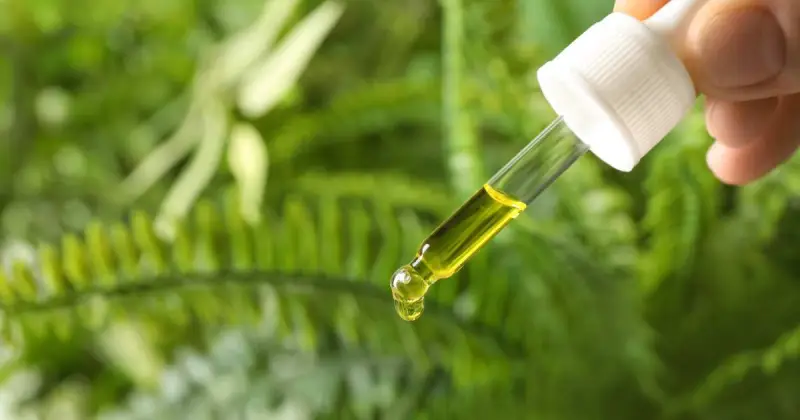
Neem Oil vs. Chemical Pesticides For Grasshoppers
Opting for Neem oil over chemical pesticides offers an environmentally friendly and effective method to control grasshoppers. As an organic option, Neem oil disrupts the life cycle of grasshoppers, serving as both a deterrent and a growth inhibitor.
In contrast to chemical pesticides, which may negatively impact non-target insects and the surrounding environment, Neem oil is deemed safe when applied correctly. Nonetheless, repeated applications might be necessary for sustained control of grasshopper populations.
Integrating Neem oil with additional pest management strategies could improve its overall effectiveness. For example, Integrated Pest Management (IPM) combines multiple control strategies, such as cultural, biological, and chemical control methods, which can effectively manage grasshoppers while minimizing environmental impact. 4
Several popular grasshopper management strategies employed by backyard gardeners include:
- Physical Barriers: Use row covers, netting, or screens to exclude grasshoppers from your plants physically. This method is most effective for small areas or individual plants.
- Cultural Practices: Implementing cultural practices such as crop rotation, planting diverse crops, and removing crop residue can help reduce grasshopper populations by disrupting their life cycle and limiting their food sources.
- Biological Control: Introduce natural predators of grasshoppers, such as birds, predatory insects, and parasitic nematodes, to help reduce grasshopper populations. You can also encourage the presence of these predators by providing habitat and food sources.
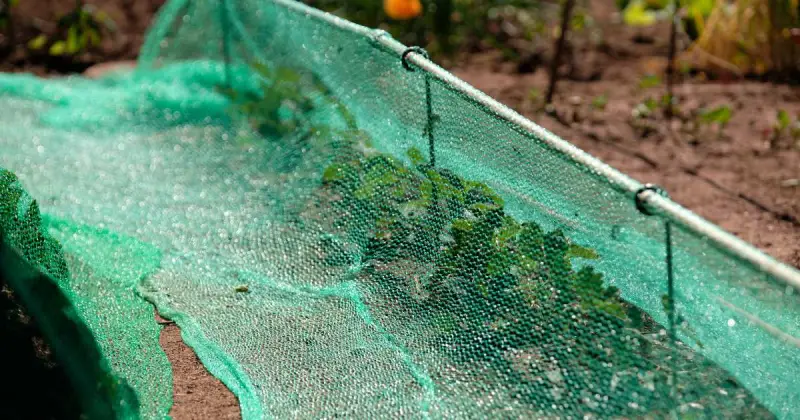
- Chemical Control: In severe infestations, chemical insecticides may be necessary to control grasshoppers. However, these should be used as a last resort and with caution, as they can also harm beneficial insects and the environment.
- Trapping: Use sticky traps or boards coated with a sticky substance to capture grasshoppers. Place these traps near plants or areas where grasshoppers are active.
- Early Detection and Monitoring: Regularly inspect your plants for signs of damage and monitor grasshopper populations in your area. Early detection can help you take action before infestations become severe.
Benefits Of Using Neem Oil For Grasshopper Control
Neem oil provides a natural method for deterring grasshoppers, serving as a repellent that interrupts their developmental stages. It’s environmentally friendly and considered safer than synthetic pesticides. With consistent application and when combined with additional pest management strategies, Neem oil can effectively control grasshopper populations in large and small gardens.
Natural Grasshopper Repellent
Neem oil is an effective natural deterrent against grasshopper infestations, aiding in plant protection. By disrupting grasshopper feeding patterns and growth, it plays a crucial role in eco-friendly pest management. Its safety for beneficial insects enhances its appeal to gardeners.
Regular application is necessary for controlling grasshopper populations and ensuring plant safety. Integrating Neem oil along with the alternative methods mentioned above can increase its efficacy against these insects. 5
Creating your own homemade insectide using Neem oil shouldn’t be hard. Neem oil can kill grasshoppers by affecting their appetite and feeding behavior. When grasshoppers consume plants treated with this oil, they may eat less or stop feeding altogether, leading to starvation and eventually death. Check out the short but informative video below that details how any backyard grower can make your own Neem oil solution at home.
A lesser-known way that Neem oil can kill grasshoppers is by disrupting their feeding and reproductive behavior. Neem oil contains compounds called azadirachtins, which act as insect growth regulators.
When grasshoppers ingest or come into contact with the oil, these compounds can interfere with their hormone systems, disrupting their development and reproduction ability. This process can help reduce grasshopper populations over time, making Neem oil an effective and environmentally friendly option for grasshopper control.
Safe for the Environment
When evaluating eco-friendly pest management strategies, the application of Neem oil emerges as a practical approach to curbing grasshopper infestations.
Extracted from the seeds of the Neem tree, this natural insecticide interrupts the life cycles of pests, including grasshoppers. Its biodegradable nature ensures it decomposes without leaving detrimental residues, making it an environmentally sound option.
Notably, when appropriately applied, Neem oil does not harm beneficial insects, thus maintaining ecological equilibrium. The table below outlines the key environmentally friendly attributes of Neem oil in pest management:
| Advantages Of Using Neem Oil | Explanation |
|---|---|
| Non-Harmful to Helpful Insects | Maintains ecological harmony |
| Decomposes Naturally | Undergoes an eco-friendly breakdown process |
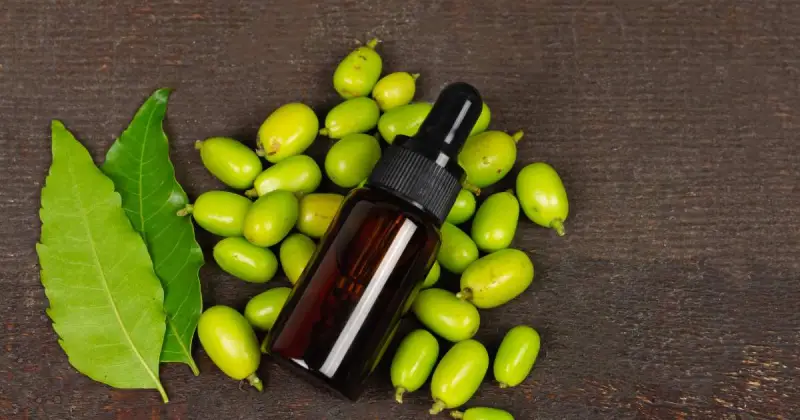
Effective Pest Control
Neem oil is an effective natural pesticide targeting grasshoppers while preserving beneficial insects. It disrupts the grasshoppers’ development, deters their feeding activities, and inhibits their growth. Appropriately applied, Neem oil poses no threat to helpful insect populations, offering a focused pest management solution.
Here are three common strategies to enhance Neem oil’s efficacy against grasshoppers:
- Regular application of Neem oil is essential for sustained control.
- Integrating Neem oil with additional pest management strategies can improve outcomes and provide a layered and multi-prong approach to responsible pest management.
- Strategic application is crucial to safeguard plants and efficiently regulate grasshopper numbers.
Tips For Maximizing Neem Oils Grasshopper-Killing Potential
Integrating Neem oil with additional pest management strategies can enhance its effectiveness in controlling grasshopper populations. Neem oil, known for its insecticidal properties, interrupts the pests’ development and reduces their inclination to consume plants. Accurate application is crucial for optimal results, and consistent usage over time may be required as part of an effective pest management plan.
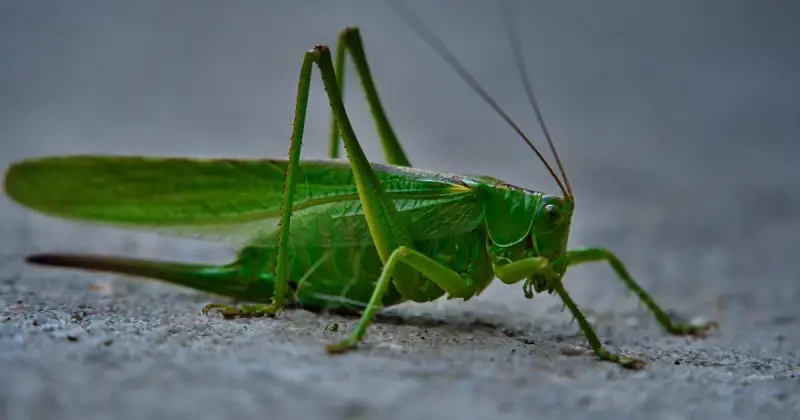
Combining Neem oil with strategies such as physical barriers or companion planting can augment its impact on grasshoppers. Incorporating Neem oil into a comprehensive pest management strategy strengthens the defense against these insects. 6
Maintaining persistence and diligence in using Neem oil to safeguard your plants from grasshoppers is essential.
Conclusion
Neem oil has proven effective in controlling grasshopper populations in gardens, with the potential to reduce their numbers by as much as 80%. This natural approach safeguards your plants and supports environmental health.
Neem oil contains compounds that act as feeding deterrents, making plants treated with neem oil less appealing to grasshoppers.
However, it’s important to note that Neem oil is not an instant knockdown insecticide and may take time to work. It’s also essential to follow the instructions on the product label and avoid spraying Neem oil on plants during hot weather or in direct sunlight, as this can cause the oil to burn the plants.
Have you previously dealt with invading grasshoppers? Have you applied Neem oil in your garden to provide much-needed plant relief and protection? We’d love to hear about your success story. Leave a comment below and tell us how Neem worked for you, PLUS any additional pest management strategies you employed!
SOURCES
- Springer – Neem Products For Protecting Field Cassava From Grasshopper Damage
- ATTRA – Grasshoppers – Botanical Control Formulations
- National Library Of Medicine, National Center For Biotechnology Information – Neem Oil And Crop Protection From Now To The Future
- Cambridge University – Field And Laboratory Trials Using A Locally Produced Neem Insecticide Against The Sahelian Grasshopper, Kraussaria Angulifera (Orthoptera: Acrididae), on Millet In Mali
- University Of Arizona, Cooperative Extension – Alternative Pesticide Options For The Home Gardener
- Wikipedia – Grasshopper

